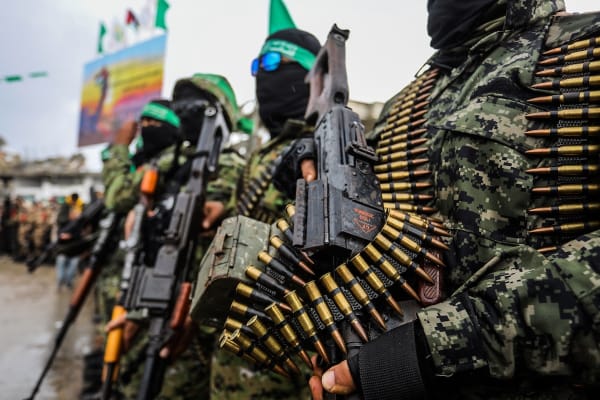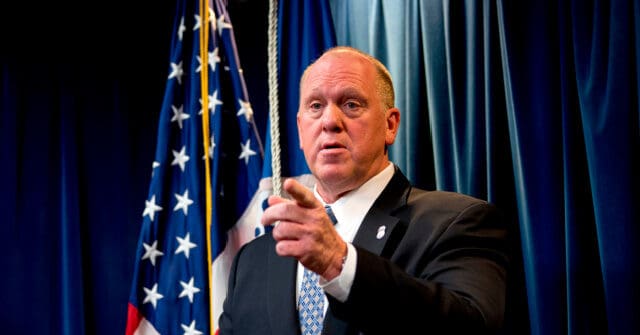Members of Hamas’ Al-Qassam Brigades hand over of Israeli hostages to the Red Cross, as part of the ceasefire agreement between Israel and Hamas, in Rafah, February 22, 2025. (Photo: Abed Rahim Khatib/Flash90)
Hamas terrorist organization negotiators in Egypt have reportedly eased some of the demands that previously derailed hostage talks, an Arab diplomat and an Israeli official told The Times of Israel on Friday. Speaking on condition of anonymity, the Arab leader cautioned that despite this shift, significant differences remain between the parties. One of the main sticking points is Hamas’ refusal to disarm – a condition emphasized by Israel, the United States, and other Western countries.
In May, U.S. envoy Steve Witkoff presented his proposal for a 60-day ceasefire and a partial hostage deal. Despite having reservations, Israel accepted the plan, but Hamas rejected it, insisting instead on a complete end to the war that began with its Oct. 7 mass terror attack on southern Israel’s Gaza border communities.
Arab mediators have since conveyed to Israeli officials that Hamas may have softened its stance. However, Israeli officials reportedly responded that they are no longer interested in a partial agreement. Jerusalem has indicated that Israel will only call off its planned military operation in Gaza City if Hamas meets its key demands.
Israeli Prime Minister Benjamin Netanyahu recently stressed that Israel does not want long-term control of Gaza but seeks to remove Hamas from power . Key Israeli demands include the release of the remaining 50 Israeli hostages, including the living and the deceased; the disarmament of Hamas operatives; and the demilitarization of Gaza after the war. However, Hamas has so far remained opposed.
Arab diplomats reportedly called the demand to disarm Hamas a “poison pill” that would undermine the talks, noting that only the Israeli military is considered capable of carrying out such disarmament. Furthermore, the demilitarization of the enclave would likely require continued Israeli military operations to prevent Hamas and other terror groups from attempting to regroup and rearm.
Arab negotiators have instead called for a gradual disarmament of Hamas and presented the plans to disarm Hezbollah in Lebanon as a blueprint for Hamas in Gaza. It is currently unclear whether the Hezbollah disarmament in Lebanon will indeed be implemented.
Hezbollah leader Naim Qassem warned on Friday that it would confront the Lebanese government militarily if Beirut proceeds with its pledge to disarm the Iranian-backed organization. Although Hezbollah has been significantly weakened by its war with Israel, it still retains enough military strength to challenge Lebanon’s Armed Forces.
Mediators from Qatar and Egypt are reportedly working to persuade Hamas to accept the Witkoff proposal that it had previously rejected. Israel, however, has indicated that it is no longer interested in partial agreements, insisting instead on a comprehensive deal that would secure the release of all remaining Israeli hostages and dismantle Hamas as a threat to its security.
Arab negotiators hope that if they can persuade Hamas to agree to a partial deal, Israel may accept the release of at least some hostages. Israel’s Channel 12 News reported that Netanyahu received a “dramatic” document from a professional source in which Hamas pledged in writing to release certain hostages without demanding an end to the war. It remains unclear how Netanyahu responded to the alleged document.
While Hamas negotiators appear to be stalling for time, the clock is running out for the Israeli hostages, many of whom face the risk of starvation and systematic abuse in captivity. In early August, Hamas released a propaganda video showing the emaciated hostage Evyatar David . Of the 50 hostages still held in Gaza, about 20 are believed to remain alive.





